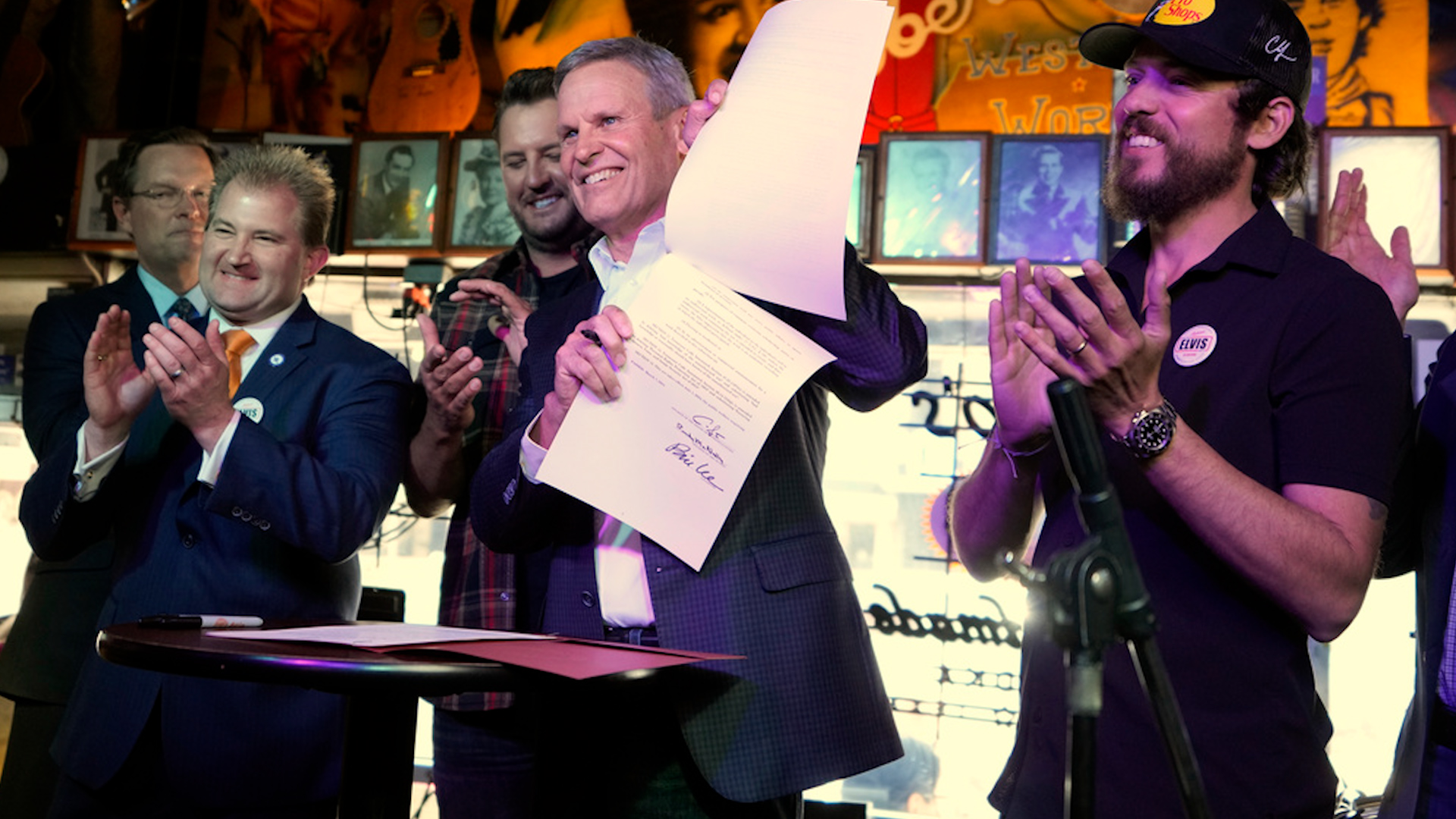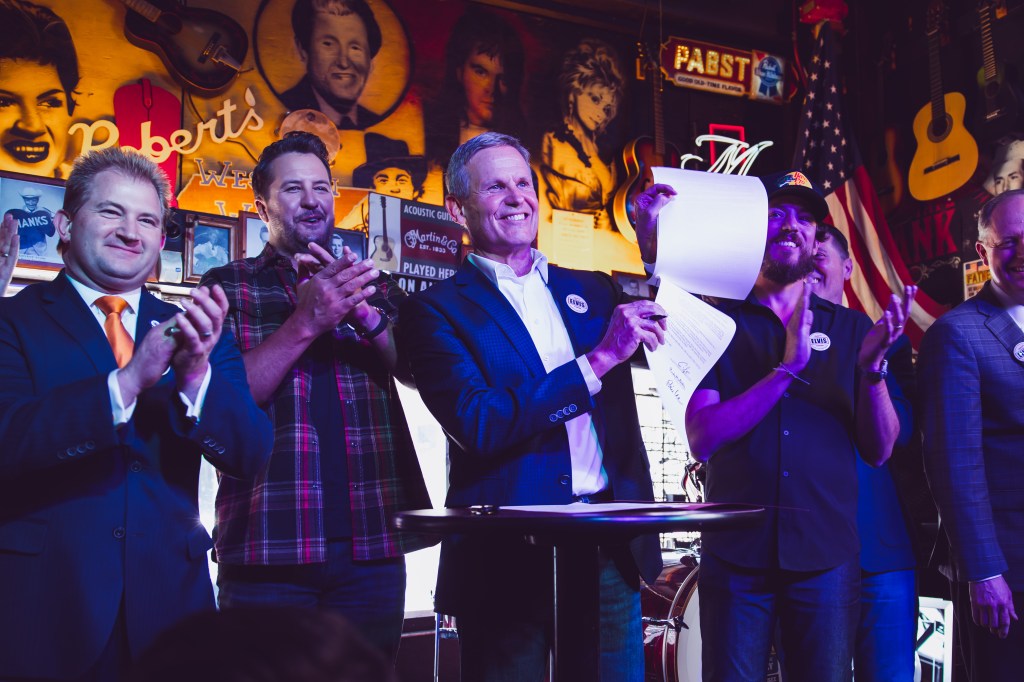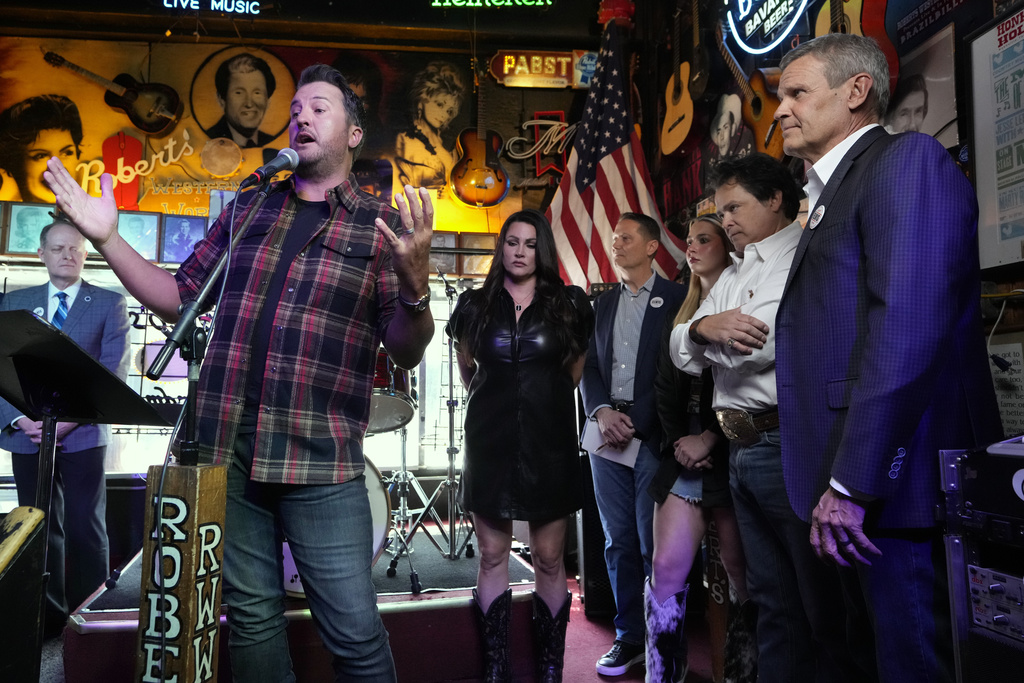
Tennessee’s new ELVIS Act protects musicians from AI impersonations
This report was created with support from enhanced software.
Media Landscape
See how news outlets across the political spectrum are covering this story. Learn more[LAUREN TAYLOR]
TENNESSEE GOVERNOR BILL LEE SIGNED A GROUNDBREAKING LAW THURSDAY DESIGNED TO SHIELD ARTISTS FROM UNAUTHORIZED ARTIFICIAL INTELLIGENCE IMPERSONATIONS.
THE ENSURING LIKENESS VOICE AND IMAGE SECURITY OR ELVIS ACT ADDRESSES GROWING CONCERN AMONG ARTISTS ABOUT DEEPFAKE TECHNOLOGY AND AI IMPERSONATIONS THAT MIMIC THEIR OWN VOICES. FOR THE FIRST TIME, IT RECOGNIZES AN ARTIST’S VOICE AS A PROTECTED PERSONAL RIGHT AND SETS STRICTER GUIDELINES ON THE USE OF SOMEONE’S NAME, IMAGE, AND APPEARANCE.
GOV. BILL LEE
TENNESSEE | (R)
“the really great thing about this is Tennessee is the first in the nation to enact this legislation what that yeah and what that means is that this will be this will be a blueprint and we expect that it will that it will be be enacted multiple times over multiple States and at some point that artists all across America will be protected because of what started here in the music capital of the world so um we will ensure that no one can steal the voices of of Tennessee artists and I believe that what we’re doing here today will ensure that no one will steal the voices of American artists
once this uh is enacted across the country.”
[LAUREN TAYLOR]
THE LAW HAS SUPPORT FROM THE MUSIC COMMUNITY. GOVERNOR LEE, ALONGSIDE STARS LUKE BRYAN AND CHRIS JANSON, SIGNED THE ACT AT LOCAL MUSIC VENUE KNOWN AS A HONKY TONK, CALLING IT “THE COOLEST BILL SIGNING EVER.”
THE BILL ALSO RECEIVED BACKING FROM THE MUSIC INDUSTRY AND THE HUMAN ARTISTRY CAMPAIGN, A WORLDWIDE EFFORT BY ENTERTAINMENT GROUPS ADVOCATING FOR A THOUGHTFUL USE OF AI.
IN THE U.S., THE PROTECTION OF PUBLICITY RIGHTS—COVERING ONE’S NAME, LIKENESS, AND VOICE—DIFFERS FROM STATE TO STATE
THE ELVIS ACT UPDATES THE PERSONAL RIGHTS PROTECTION ACT OF 1984, WHICH WAS FIRST ENACTED TO PROTECT ELVIS PRESLEY’S PUBLICITY RIGHTS POSTHUMOUSLY.











